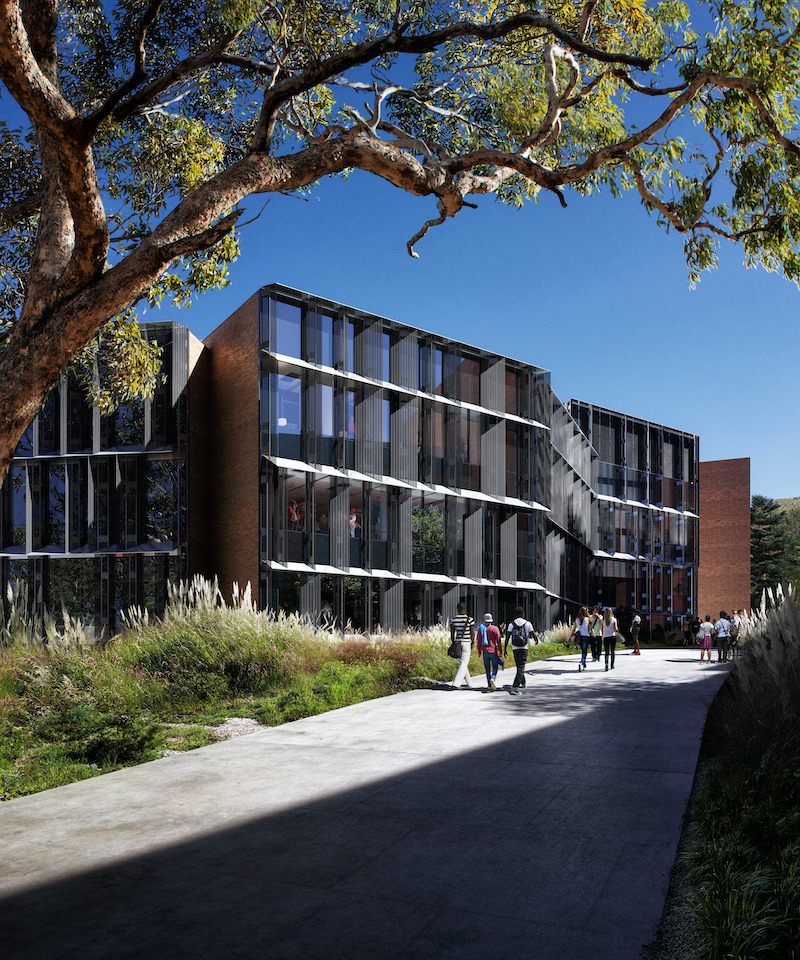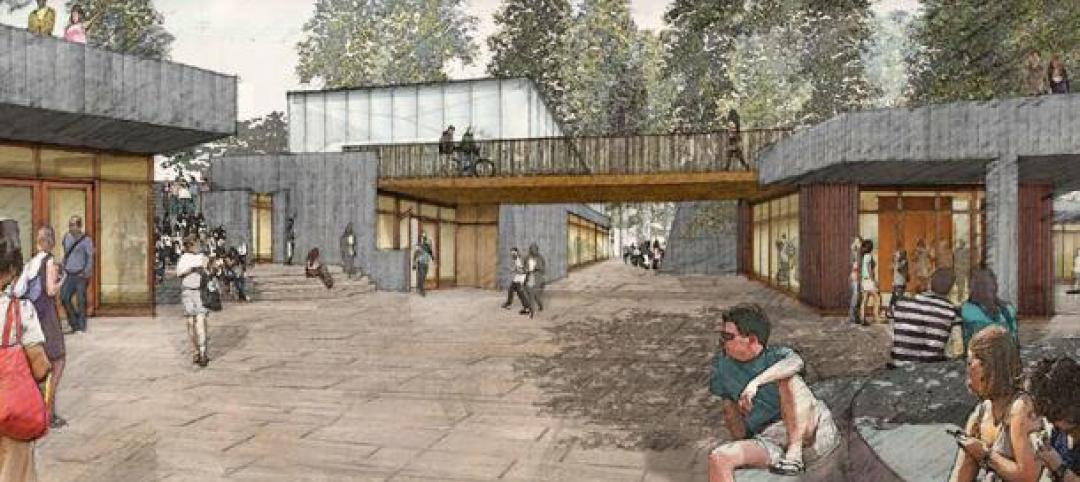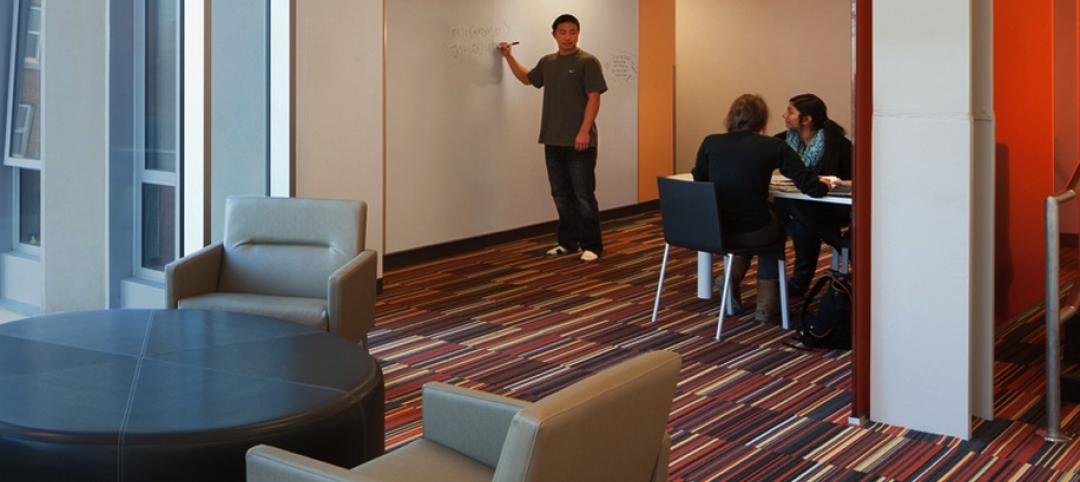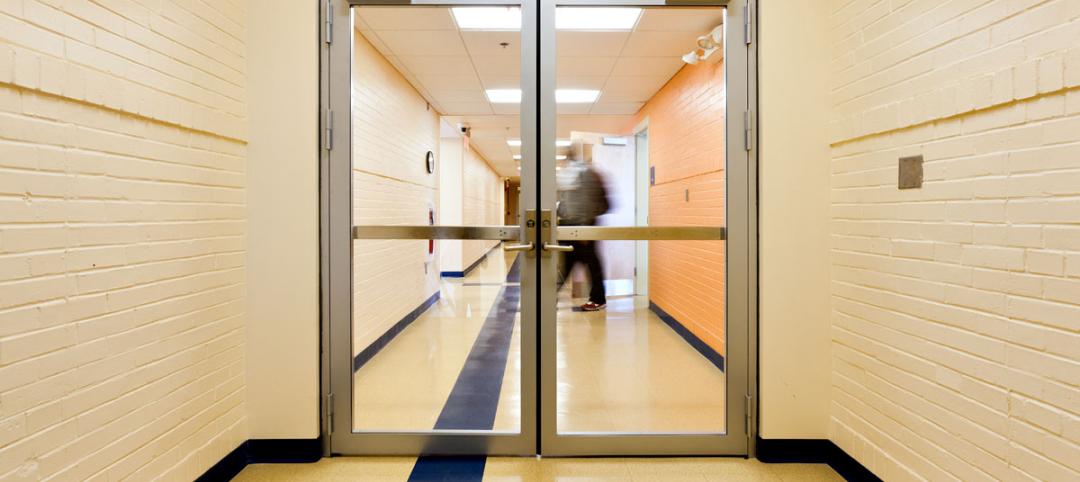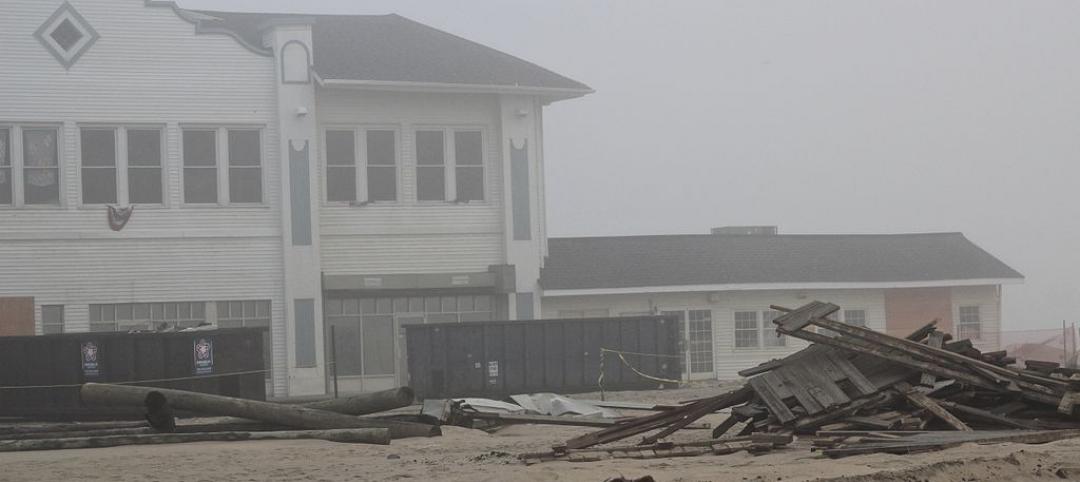Cal Poly San Luis Obispo’s newest addition to its campus, The William and Linda Frost Center for Research and Innovation, is currently under construction.
The four-story, 103,800-sf Center is dedicated to undergraduate students who engage in faculty-mentored research each year and work side-by-side with professors. The Frost Center will bring three colleges together under one roof: the College of Liberal Arts, the College of Science and Mathematics, and the College of Agriculture, Food, and Environmental Sciences. It is designed to support the educational priorities of a growing student and faculty population, promote interdisciplinary communities, and provide academic space.
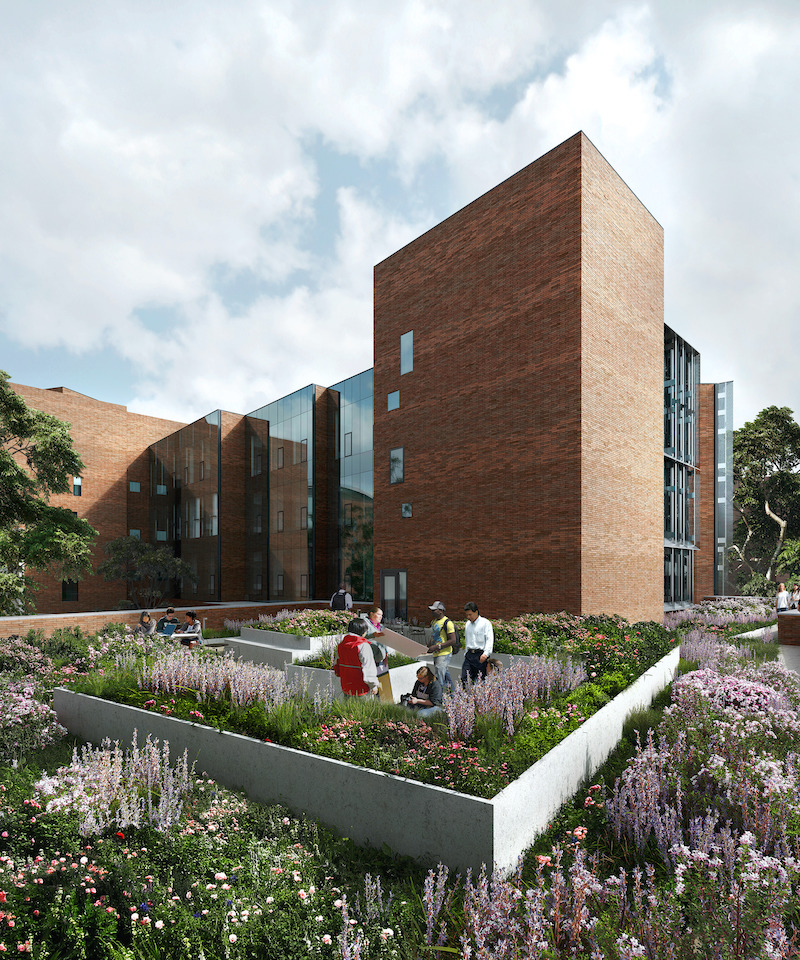
Included within the building are 19 flexible laboratory and teaching spaces, large general-purpose classrooms, collaboration areas, faculty/staff offices, a recording studio, editing bays, a high-end computer lab, and a teaching kitchen. The teaching kitchen is showcased on the first floor and is highly visible from the atrium.
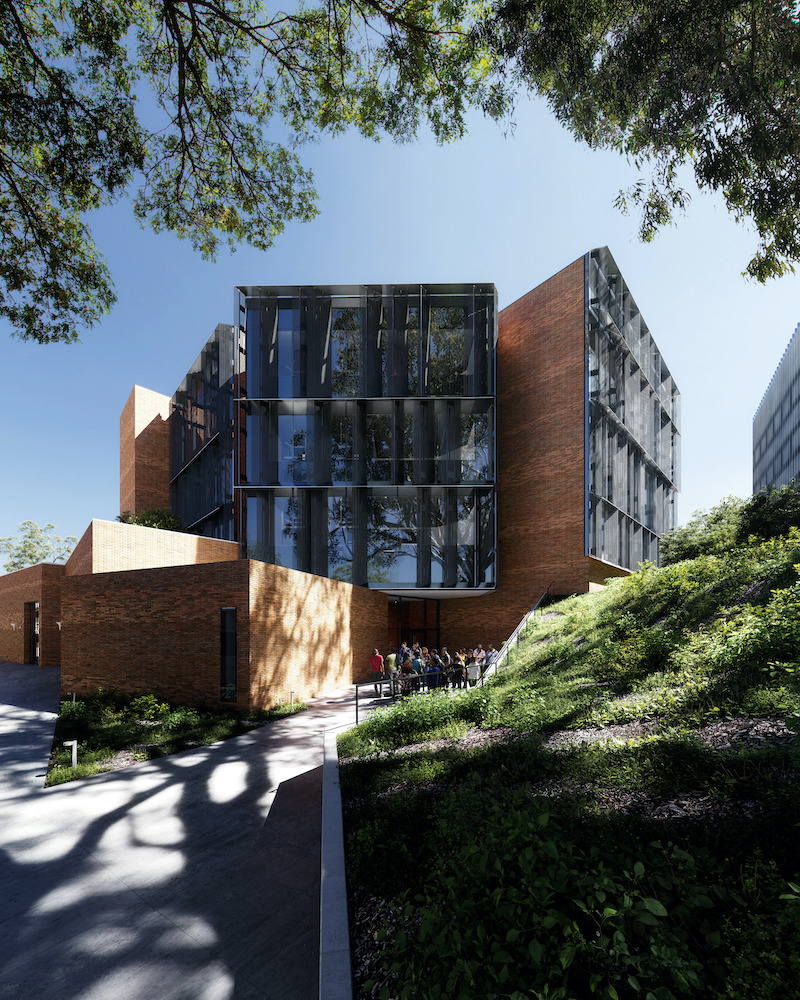
The modularly planned laboratories provide flexibility for any future changes and can be combined to produce large, open laboratories or subdivided to produce small instrument or special-use laboratories. A “big room” for the College of Liberal Arts will give students a space where they can create, perform, test, record, and display their work for passersby along the adjacent hallways and exterior pathways.
Passive design strategies and natural ventilation will create a healthy building for occupants. 100% outside air from air handling units and operable windows in offices allow the building to avoid the recirculation of air that might provide an avenue for airborne exposure to viruses such as COVID-19.
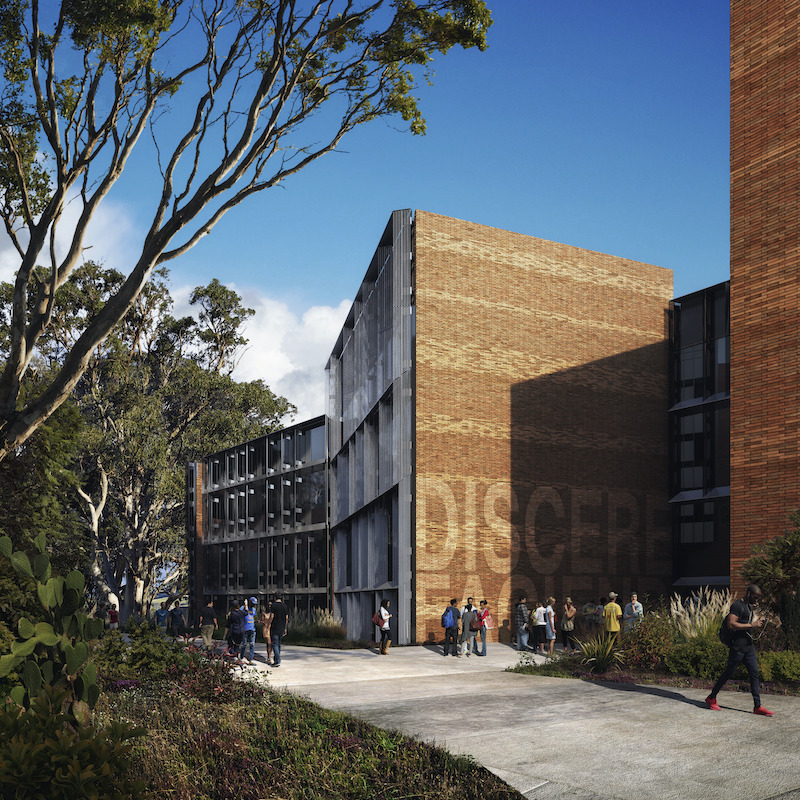
The project is designed to achieve LEED Gold and includes sustainable features such as passive heating and cooling strategies, will consume 30% less potable water, and will have the capacity to accommodate future rooftop solar panels.
See Also: Apartments and condos occupy what was once a five-story car dealership
The William and Linda Frost Center for Research and Innovation is slated for completion in late 2021.
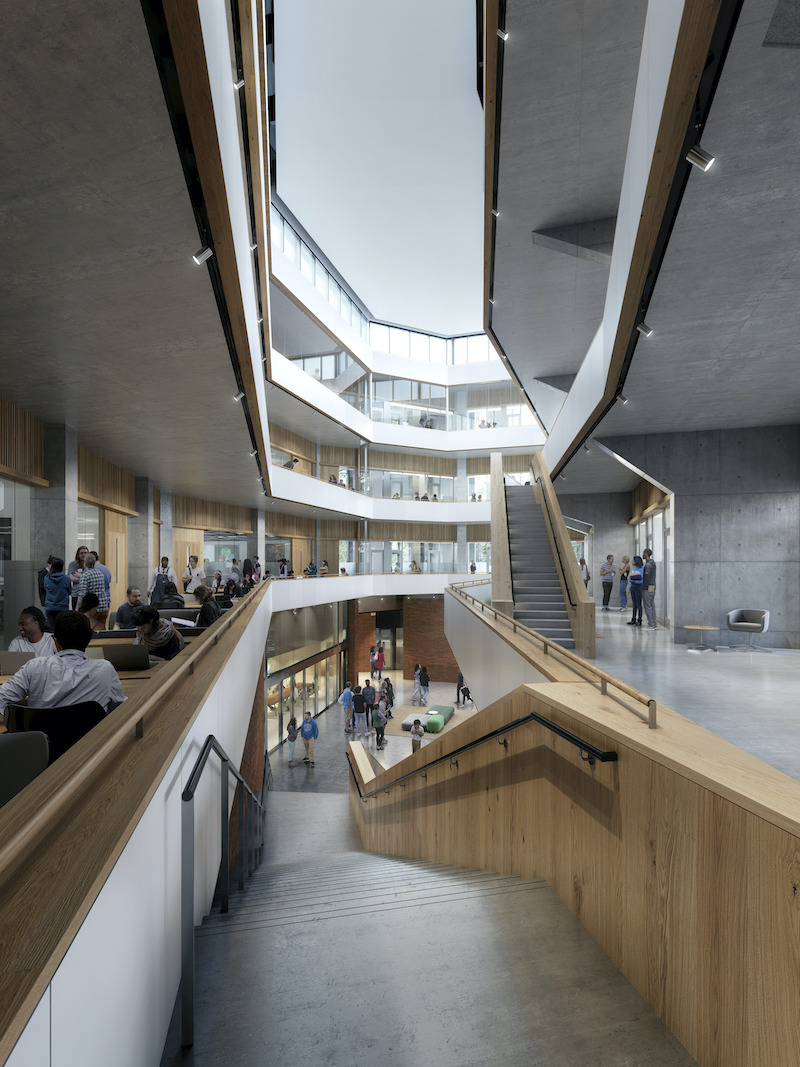
Related Stories
| Jun 12, 2014
Tod Williams Billie Tsien Architects' design selected for new UCSC facility
The planned site is a natural landscape among redwood trees with views over Monterey Bay, a site that the architects have called “one of the most beautiful they have ever worked on.”
| Jun 12, 2014
Austrian university develops 'inflatable' concrete dome method
Constructing a concrete dome is a costly process, but this may change soon. A team from the Vienna University of Technology has developed a method that allows concrete domes to form with the use of air and steel cables instead of expensive, timber supporting structures.
| Jun 11, 2014
5 ways Herman Miller's new office concept rethinks the traditional workplace
Today's technologies allow us to work anywhere. So why come to an office at all? Herman Miller has an answer.
| Jun 9, 2014
6 design strategies for integrating living and learning on campus
Higher education is rapidly evolving. As we use planning and design to help our clients navigate major shifts in culture, technology, and funding, it is essential to focus on strategies that help foster an education that is relevant after graduation. One way to promote relevance is to strengthen the bond between academic disciplines and the campus residential life experience.
| May 29, 2014
7 cost-effective ways to make U.S. infrastructure more resilient
Moving critical elements to higher ground and designing for longer lifespans are just some of the ways cities and governments can make infrastructure more resilient to natural disasters and climate change, writes Richard Cavallaro, President of Skanska USA Civil.
Sponsored | | May 27, 2014
Grim Hall opens the door to fire safety with fire-rated ceramic glass
For the renovation of Lincoln University’s Grim Hall life sciences building into a state-of-the-art computer facility, Tevebaugh Associates worked to provide students and faculty with improved life safety protection. Updating the 1925-era facility's fire-rated doors was an important component of the project.
| May 20, 2014
Kinetic Architecture: New book explores innovations in active façades
The book, co-authored by Arup's Russell Fortmeyer, illustrates the various ways architects, consultants, and engineers approach energy and comfort by manipulating air, water, and light through the layers of passive and active building envelope systems.
| May 19, 2014
What can architects learn from nature’s 3.8 billion years of experience?
In a new report, HOK and Biomimicry 3.8 partnered to study how lessons from the temperate broadleaf forest biome, which houses many of the world’s largest population centers, can inform the design of the built environment.
| May 13, 2014
19 industry groups team to promote resilient planning and building materials
The industry associations, with more than 700,000 members generating almost $1 trillion in GDP, have issued a joint statement on resilience, pushing design and building solutions for disaster mitigation.
| May 11, 2014
Final call for entries: 2014 Giants 300 survey
BD+C's 2014 Giants 300 survey forms are due Wednesday, May 21. Survey results will be published in our July 2014 issue. The annual Giants 300 Report ranks the top AEC firms in commercial construction, by revenue.


